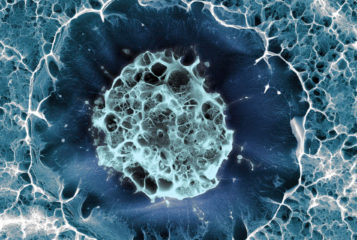Professor Ian Wilmut, the pioneering creator of Dolly the sheep, is seeking permission from the UK's Human Fertilisation and Embryology Authority (HFEA) to ask women to donate eggs for cloning experiments in his work on motor neurone disease.
Professor Wilmut, who was granted a cloning licence by the HFEA in February, told the Guardian newspaper: 'I have never doubted that women would donate if they thought they were helping people to have treatment. Our hope and belief is that women who have seen the devastating effects of this disease will be prepared to make such a donation'.
Until now, cloning experts in Britain have only used spare eggs left over from fertility treatment for their experiments, but many scientists believe that their work is hampered by the low quality of these eggs. Others, however, believe that asking women to donate eggs purely for research may lead to a financial incentive that is morally objectionable. Critics claim that Professor Wilmut's plan turns women and their eggs into commodities. They also warn that any woman considering donating eggs must be fully informed of the health risks before undergoing the long and sometimes painful procedure.
The benefits of collecting fresh eggs were demonstrated by Professor Woo Suk Hwang's world-leading team in South Korea. It became the first in the world to create a cloned human embryo after gathering eggs from women who donated their eggs specifically for research in 2004. Another team, led by Professor Alison Murdoch at Newcastle University in the UK, created the first cloned human embryo in Europe in May using spare eggs, and found that the quality of the eggs was the key to success.
Professor Wilmut's proposal has angered some religious groups. Donald Bruce, who heads the Church of Scotland's Society, Religion and Technology project, said: 'There are already eggs which are available. That a researcher now wants a certain type of egg is starting to turn the egg and the woman into commodities'. He added: 'I'm very nervous about this. Altruistic donation has a strong tradition in medicine, but any inducement to donate, whether it is moral or financial, is something we should be wary of'.
The HFEA said it has not yet received any formal application from Professor Wilmut, but stressed that any such proposal would be considered extremely carefully both by an independent ethics committee and the HFEA's own licensing group.
Sources and References
-
Cloning plan poses new ethical dilemma
-
Watchdog warning over research eggs






Leave a Reply
You must be logged in to post a comment.